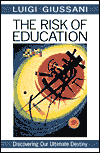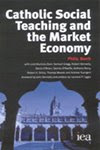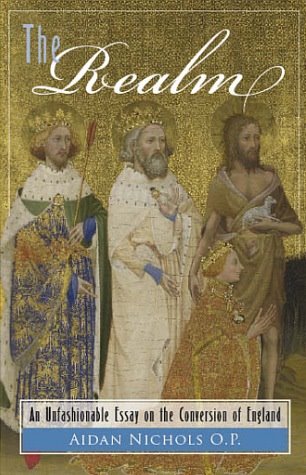The Snow Queen
"Once upon a time there was a wicked sprite, indeed he was the most mischievous of all sprites. One day he was in a very good humor, for he had made a mirror with the power of causing all that was good and beautiful when it was reflected therein, to look poor and mean; but that which was good-for-nothing and looked ugly was shown magnified and increased in ugliness...
"That's glorious fun!" said the sprite. If a good thought passed through a man's mind, then a grin was seen in the mirror, and the sprite laughed heartily at his clever discovery. All the little sprites who went to his school--for he kept a sprite school--told each other that a miracle had happened; and that now only, as they thought, it would be possible to see how the world really looked. They ran about with the mirror; and at last there was not a land or a person who was not represented distorted in the mirror. " The Snow Queen, Hans Christian Andersen
Catholic dissent is driven by a sense of grievance. The person who rejects the teaching of the Church does as a demand for justice, for their "due" as they conceive it. This is no surprise. No-one consciously desires the bad. Everyone desires the good, or at least what they conceive of as the good. And justice is one of the highest natural goods.
Both liberal progressives and conservative vigilantes share this vice. Each conceives of themselves as serving the good better than the Church ever could, the first calling the Church harsh, the second lax, but agreeing that the Church fails in justice.
But to call the Church unjust strikes at the heart of what it is to be Catholic, and the Catholic who makes this accusation is always in danger of falling into open apostasy. Consciously or not, this Catholic will claim to reject not the magisterium, but its unjust or imprudent exercise, denying the accusation of apostasy. A certain equilibrium is recovered, but this move comes at a cost.
If the magisterium is not motivated by justice or prudence, all that is left is to claim that it is motivated by power (the possibility of motivation by grace, in both its strictness and generosity, having never been considered). For this reason, much of the language of debate is couched in terms of power: criticism of monarchical popes or bishops, demands for more democratic decision-making, claims to determine what is authentically Catholic and what isn't on personal "authority", along with talk of "taking back the Church", and purging "dead wood".
But an authentic Catholicism can never see the Church as an exercise of power. To see the Church as a political institution is to see it reflected in a false mirror, which will ultimately make "all that was good and beautiful when it was reflected therein, to look poor and mean". And most of us have encountered such types: fighting non-existent enemies, rallying troops on non-existent battlefields.
The magisterium does not belong to the order of power. It belongs to the order of truth and grace, and even the Pope is subject in obedience this order. To quote the current Pope:
"In fact, the First Vatican Council had in no way defined the pope as an absolute monarch. On the contrary, it presented him as the guarantor of obedience to the revealed Word. The pope's authority is bound to the Tradition of faith..." -
The Spirit of the Liturgy, Joseph Ratzinger.
Power is a false mirror. If we begin to see our lives in the Church through that mirror, we will begin in resentment and end in despair.
Jesus thought so little of power that he refused it when offered by the Devil. And he carried that refusal through to the Cross, when he could have exercised His divinity to escape. But He didn't. And I suspect this is a clue to something very important.
We assume the reason Christ did not resort to power on the Cross was because he chose not to. I am sure that's true. But I suspect there might be an even deeper, secret reason: power does not exist.
I repeat it, as absurd as it sounds: power does not exist. Only love, in the end, exists. That is the only mirror that yields the true Image. Dissidents and vigilantes take note.





1 comment:
My favourite bible text is "My grace is sufficient for you, for my power is made perfect in weakness" (2 Cor 12:9). One thing I really appreciated about Luther's spirituality was his "theology of the cross". Papa Benny displays this in spades.
So, great post, Athanasius. That wraps it up for "power in the Church", now what about "sex"? :-)
Post a Comment